Iran’s deputy FM warns of possible withdrawal from NPT in case of snapback activation
Iran’s deputy foreign minister has warned that the Islamic Republic will walk out of the Treaty on the Non-Proliferation of Nuclear Weapons (NPT) should the so-called snapback mechanism that fully reinstates anti-Tehran sanctions be activated.
Majid Takht-Ravanchi made the remarks as quoted by spokesman for the Iranian Parliament's National Security and Foreign Policy Committee, Ebrahim Rezaei, on Tuesday after the senior diplomat engaged in talks in the Swiss city of Geneva with representatives from the UK, France and Germany — the three European signatories to the 2015 Iran nuclear deal, known as the Joint Comprehensive Plan of Action (JCPOA).
“Takht-Ravanchi announced that at this stage we felt that negotiation could be useful and we talked about various issues, including the nuclear issue. Also, regarding Iran's countermeasures in the event of the resumption of snapback [mechanism], one of the options we raised was to withdraw from the NPT and that we could abandon the NPT,” Rezaei said.
The deputy foreign minister stated that they will probably have another round of exchanging views with Europe, and that all discussions were within the framework of regulations, noting that they “participated in the talks without false optimism” he added.
The committee spokesman also cited Takht-Ravanchi as saying that the goal of the Geneva talks was to safeguard the achievements of the 1979 Islamic Revolution.
“We did not negotiate, we merely discussed and exchanged views; we did not negotiate in Geneva because we did not have a text and there was no text on which we could actually negotiate,” he said.
Rezaei quoted Takht-Ravanchi as saying that the Europeans failed to adhere to their commitments after then-US president Donald Trump withdrew from the JCPOA, adding, “We were trying to first set the framework for the talks, and we are a long way from negotiations.”
The committee spokesman also cited another Iranian negotiator in the Geneva talks, Kazem Gharibabadi, who is Iran's deputy foreign minister for legal and international affairs, as saying that no negotiation had come to pass.
“Negotiations have not yet taken place, and most of our exchanges in recent talks have been on the nuclear issue and the brutal sanctions against the Iranian nation, and of course we also talked about countermeasures,” Gharibabadi was quoted as saying.
“In these talks, some recent measures against our country, including the sanctions on [Iran’s] shipping and airlines, the recent European statement on Iranian islands [in the Persian Gulf], and the resolution of the Board of Governors, were taken to task.”
Enrique Mora, Deputy Secretary General of the European External Action Service, held talks in Geneva with Gharibabadi and Takht-Ravanchi on Thursday, stressing that he had a "frank exchange" with the two.
Gharibabadi announced on Friday that the Iranian delegation held another round of “candid” discussions with political directors of the three European countries, also known as the E3, and agreed to pursue dialogue "in the near future."
In 2015, Iran proved the peaceful nature of its nuclear program to the world by signing the JCPOA with six world powers. However, Washington’s unilateral withdrawal in 2018 and its subsequent re-imposition of sanctions against Tehran left the future of the deal in limbo.
In 2019, Iran started to roll back the limits it had accepted under the JCPOA after the other parties failed to live up to their commitments.
Tensions between Iran and European countries have escalated over the past two years due to European accusations that Iran has supplied ballistic missiles to Russia for use in the Ukraine conflict, an allegation that Tehran has categorically rejected. Ukrainian President Volodymyr Zelensky has also stated that no such missiles were delivered to Russia.
In a recent action against Tehran, the European troika pushed the adoption of a resolution in the Board of Governors of the International Atomic Energy Agency (IAEA).
The resolution accused Tehran of poor cooperation with the agency and demanded a "comprehensive" report on its nuclear activities by spring 2025. In response, Iran said it has activated a "series of new and advanced centrifuges."
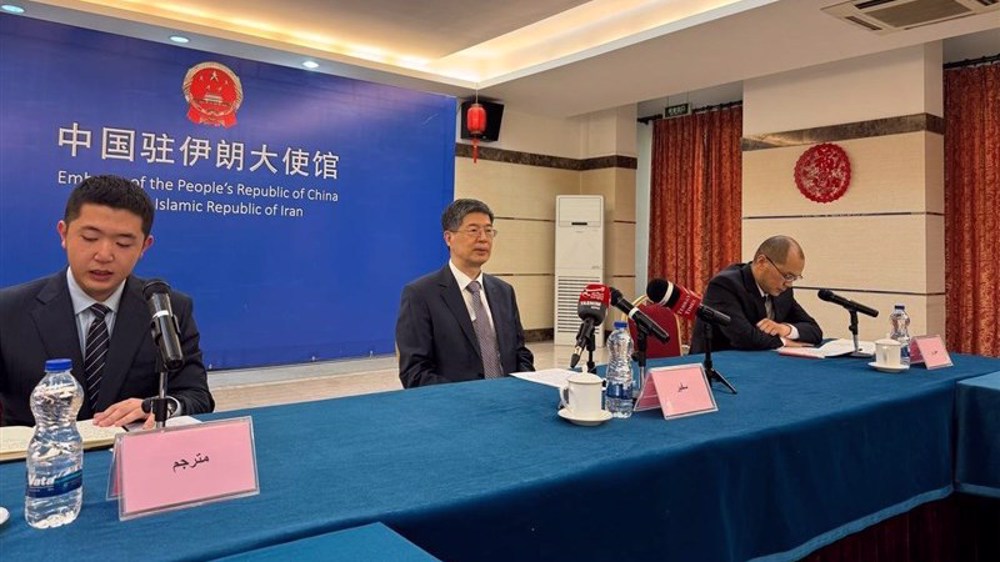
China calls for new Iran deal based on JCPOA; urges US to stop ‘maximum pressure’
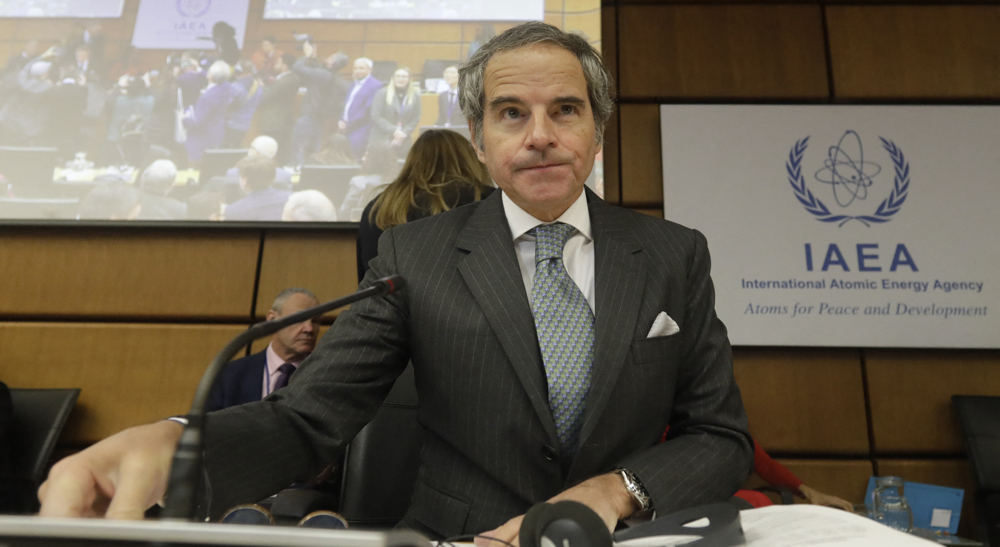
IAEA chief due in Tehran on Wednesday ahead of fresh Iran-US talks
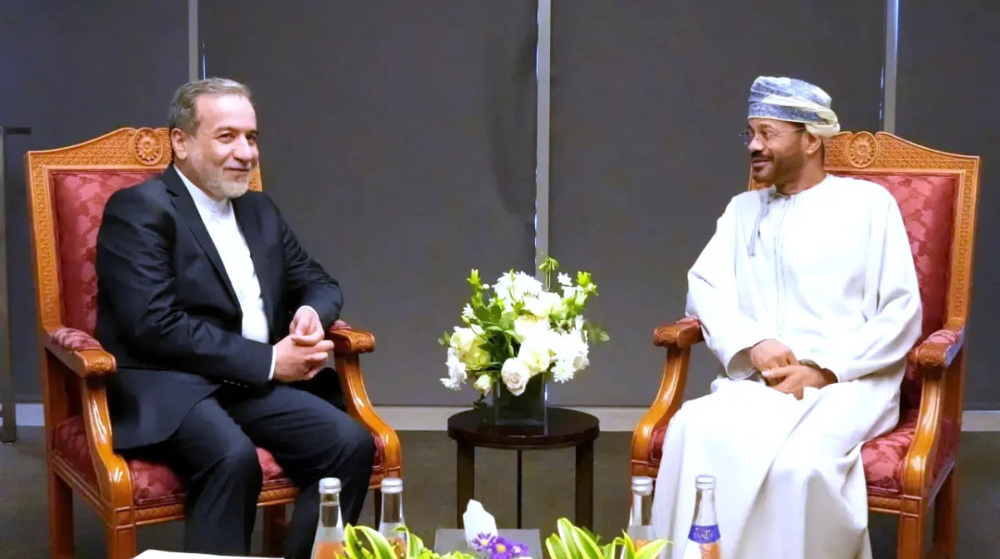
UK, alongside E3, supports indirect Iran-US talks: British minister
VIDEO | Rally against another Columbia student arrest held in New York
VIDEO | Press TV's news headlines
VIDEO | Tehran-Washington negotiations
VIDEO | Iran leads global push to define terrorism after 25 years of debate
US prepares to arm Israel with 1000s more bombs ahead of ‘vigorous expansion’ of Gaza war
Hamas: Surrender not an option; Netanyahu’s murders aimed at securing political future
VIDEO | Your children will return in coffins torn apart by Israeli missiles: Hamas to captives’ families
Hezbollah censures Israeli settlers’ storming of al-Aqsa Mosque


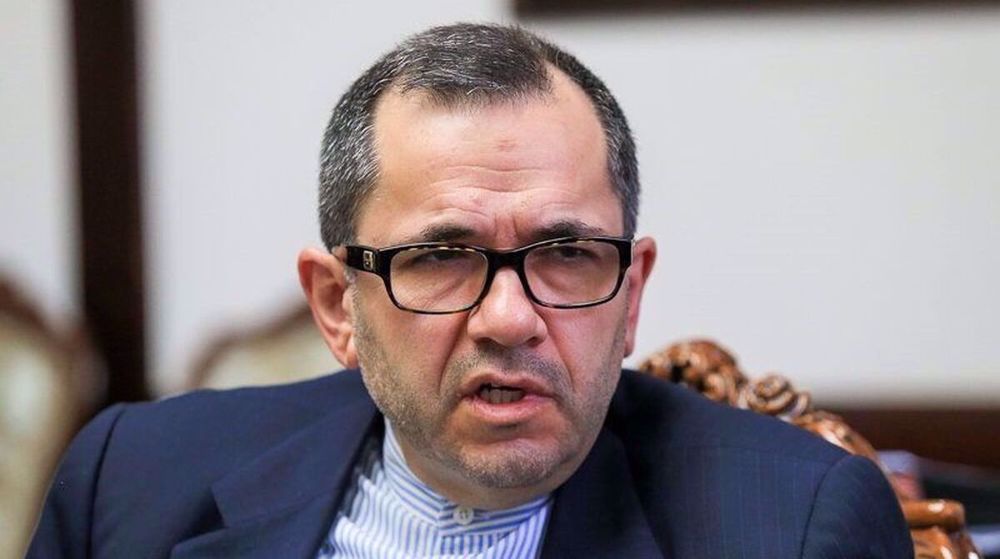
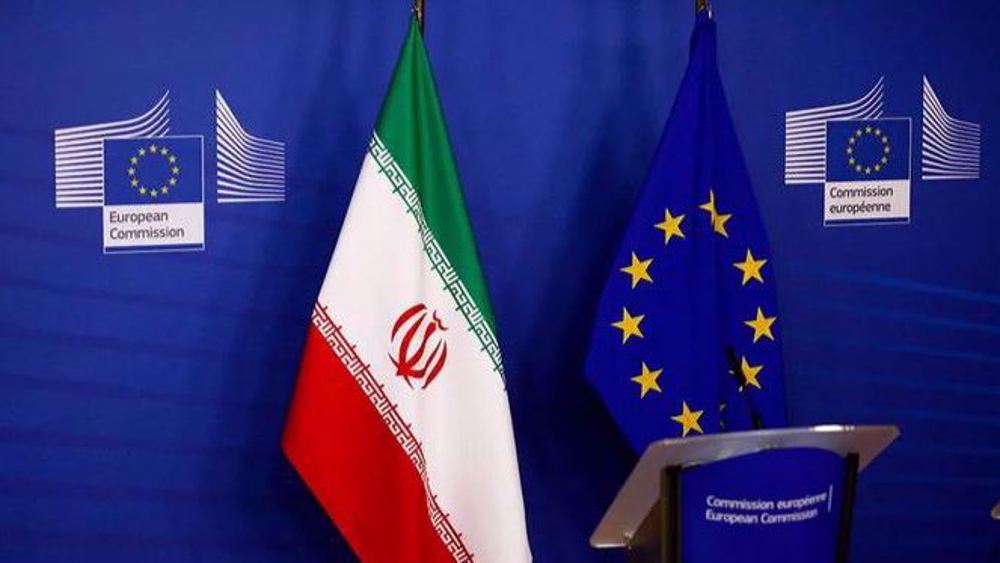




 This makes it easy to access the Press TV website
This makes it easy to access the Press TV website